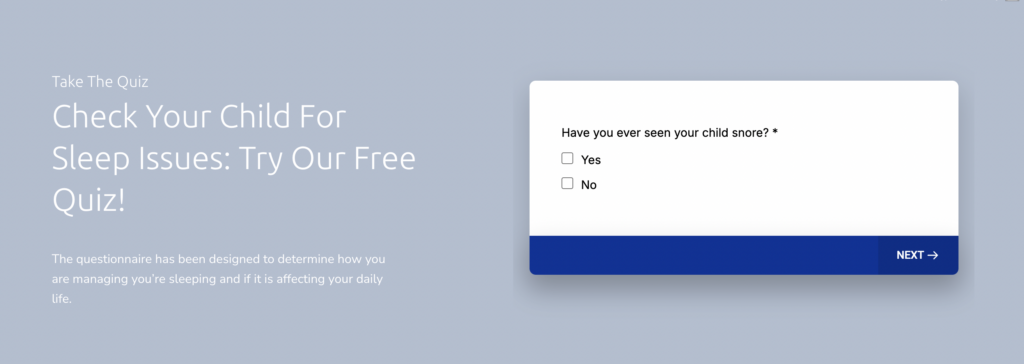Is your child still wetting the bed and you’re looking for a bedwetting treatment? You’re not alone—millions of kids struggle with bedwetting well beyond what’s considered the “normal” age.
As a parent, you’ve probably tried everything—limiting drinks before bedtime, waking them up in the middle of the night, even rewarding dry nights. But you’re still facing wet sheets and pajamas each morning. It’s frustrating, and you just want a solution.
This guide will walk you through everything you need to know about tackling bedwetting for your child, including:
- Common causes of bedwetting
- Effective treatment options
- Helpful lifestyle changes
- Tips for supporting your child through the process
Let’s work together to help your family get better rest!
What Causes Bedwetting in Children?
Bedwetting, or nocturnal enuresis, is more common than you might think. It’s the involuntary release of urine during sleep beyond ages 5-7. Roughly 5-10% of 7-year-olds wet the bed regularly, and while it tends to decrease with age, some kids still struggle with it into adolescence.
It’s often hereditary and more common in boys. Kids with developmental conditions may also experience bedwetting more frequently. In most cases, children naturally outgrow bedwetting as their bodies mature. But what are the specific causes?
- Overactive bladder: Some children’s bladders may contract before they’re fully full, which triggers the need to urinate, even with small amounts of urine.
- Low nighttime bladder capacity: For some kids, their bladder just can’t hold as much urine at night as it does during the day.
- Deep sleepers: Some children sleep so deeply that they don’t wake up when their bladder signals it’s time to go.
- Hormone issues: Problems with anti-diuretic hormone can make it harder to control urination overnight.
- Airway problems: Restricted airways during sleep can make it difficult for kids to wake up and urinate, leading to bedwetting.
Most children aren’t doing this on purpose, and it’s rarely caused by medical issues. It’s simply a matter of their bodies not yet syncing up bladder control with sleep patterns. Be patient as we explore solutions together.
The Hidden Link Between Sleep Disorders and Bedwetting
Bedwetting is often linked to underdeveloped jaws or restricted airways. When a child’s airway is narrow, they may experience sleep-disordered breathing, which can interfere with their ability to wake up when they need to urinate.
The National Institute of Health points out that children with obstructed airways may not wake up easily due to reduced oxygen levels during sleep, even if their bladder is full. This makes jaw development and airway health a key part of addressing bedwetting.
Effective Bedwetting Treatments
If your child is still wetting the bed past age 7, it might be time to consult a pediatrician or dentist. They can rule out underlying issues like diabetes, constipation, kidney problems, or sleep disorders.
For most cases, the first step in treatment includes behavior modifications and lifestyle changes:
- Limit fluids before bed: Reduce how much your child drinks in the hours leading up to bedtime.
- Avoid certain drinks: Cut out caffeine and acidic beverages like juice in the evening.
- Encourage nighttime bathroom trips: Have your child go to the bathroom before bed and if they wake up at night.
- Positive reinforcement: Use rewards to celebrate dry nights and progress.
- Wake your child at night: Gently waking your child to use the bathroom during the night can help break the cycle.
- Bedwetting alarms: Nighttime alarms that detect moisture and wake your child have the highest long-term success rate.
Medication and Other Alternatives
If lifestyle changes aren’t enough, there are several medical treatments that may help:
- Desmopressin (DDAVP): This medication helps reduce urine production at night. It comes in oral tablet or nasal spray form.
- Anticholinergics: These medications relax the bladder muscles, allowing the bladder to hold more urine overnight.
- Tricyclic antidepressants: Sometimes used off-label to treat bedwetting by regulating the brain’s sleep-wake cycle.
- Hormone therapy: This may be used if hormonal imbalances are contributing to the issue.
Your child’s doctor will guide you through the right treatment options based on your child’s specific needs.
Exploring Vivos Treatment for Bedwetting
At Dynamic Family Dentistry, we offer a non-medical treatment option that targets breathing issues related to bedwetting—the Vivos treatment. This innovative solution focuses on improving sleep-related breathing through oral appliance therapy.
- Fitted oral appliances: Custom-made to fit your child’s dental structure.
- Arch expansion: Helps widen the dental arches, creating more room for proper airway function.
- Non-invasive: A comfortable, natural option that avoids surgical intervention.
The Vivos system not only addresses bedwetting but also improves overall sleep and breathing quality.
Lifestyle Tips to Support Bedwetting Recovery
In addition to treatments, lifestyle changes at home can make a big difference. Here are some practical tips:
- Set a bedtime routine: Consistent routines with set times for dinner, bath, and bed help regulate your child’s body for nighttime bladder control.
- Bathroom breaks before bed: Make sure your child empties their bladder before going to sleep.
- Limit evening caffeine: Avoid soda, chocolate, and caffeinated drinks in the evening.
- Encourage regular bathroom breaks: Have your child take bathroom breaks during the day to strengthen bladder control.
- Address constipation: Help your child maintain regular bowel movements with a high-fiber diet.
- Consider a bedwetting alarm: These alarms can be highly effective in retraining nighttime bladder control.
With patience, consistency, and support, these habits can help eliminate bedwetting and ensure restful nights for everyone.
Act Now For Better Sleep
Imagine how confident your child will feel waking up dry and refreshed every morning—no more wet sheets or restless nights. Just peaceful, uninterrupted sleep for your entire family.
If bedwetting is affecting your home, take action today. Dr. Scott Kennedy at Dynamic Family Dentistry is here to help your child overcome bedwetting and get the restful sleep they need.
- Initial exam: A comprehensive screening to identify any airway or sleep-related issues.
- Personalized treatment plan: Dr. Kennedy will develop a customized plan based on your child’s specific needs.
- Ongoing support: Continuous care and adjustments as your child progresses.
Don’t let bedwetting disrupt your family’s rest any longer. Contact Dr. Scott Kennedy at Dynamic Family Dentistry to schedule a consultation today, or Call us at (254) 675-3518 and start your child on the path to dry, restful nights!



